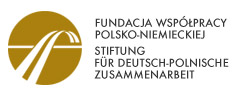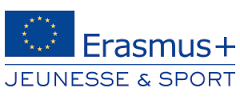End of project conference in Varna, Bulgaria
Closing conference of the project “Developing a model for sustainable water and waste management in rural areas in Bulgaria“, November 15-16, 2007, Varna, Bulgaria.
29.11.2007 |Bistra Mihaylova

Lyudmil Ikonomov opens the seminar. Next to him are: Stiliyan Grozdev (Municipal administration Varna), Anne Scheinberg (WASTE, the Netherlands), and Stan Maessen (WASTE, the Netherlands)
Specific municipal waste streams and controversial practices in their management
A two days high level conference was held in Golden Sands resort near Varna on 15 and 16 of November, 2007. The conference was organized by the Institute for Ecological Modernisation in Varna, partner of Women in Europe for a Common Future for the last 3 years and responsible for implementation of 3 pilot projects on the territory of village Topoli., Varna province.The seminar focused on the implementation phases of the pilot projects, on information about EU funding and international and national experience in the field of waste and water management. During the first day (15th of November) several presentations took place together with SWOT analysis of the current waste management system and the possibilities for introducing more sustainable technologies and policies for waste treatment. (Complete list of all the power point presentations can be found below)

Stan Maessen (WASTE, the Netherlands) presents examples for sustainable biodegradable waste management: Centralized and decentralized composting
The second day in the morning (16th November), was organized a field trip to Topoli village where the participants of the seminar could visit the implemented pilot projects by IEM for the last 3 years in the project “Developing a model for sustainable water and waste management in rural areas in Bulgaria“
1. The first completed pilot project is a water saving irrigation system for utilization of rain water in the school Hristo Smirnensky, Topoli – Varna province.

Lyudmil Ikonomov and the director of the school Mrs. Gaidarova, explaining the working principle of the water saving irrigation system.

The water is collected from the roof of an old building in the school yard which after a renovation from Varna municipality will become a gym for the pupils. After collecting the water, it goes into underground reservoirs where is filtered and by the help of a pump part of the water goes for watering the garden and part of the water goes into a small pond.

The pond is in the middle of the school garden.
2. The second pilot project implemented in Topoli is the Master Composter Program. 25 household received composters from IEM, and were educated how to make good quality compost. During the last one year, IEM monitored the families which were given composters and presented the results from the sampling and laboratory analysis of home compost. The tests were made by the Institute for soil Science “N. Pushkarov“, Varna.

Ready compost produced by one of the families which participated in the Master composter program.
3. The third pilot project is a lobbying campaign for construction the missing sewage system in the village of Topoli.

Figure 1. The village of Topoli has partly constructed sewage system. The lines marked in red are the streets where the sewage is missing. IEM made a lobbying campaign and Varna Municipality agreed to finance the construction of the sewage system. For 2007 are allocated approximately 700 000 BGN (350 000 Euros), and are completed 1800 meters of the sewage. From Varna municipality promised that in 2008 the financing continues until the sewage system in Topoli village is completed.
During the afternoon of the second day were shown results and conclusions from the study visit which IEM organized for several experts from Varna - representatives of regional municipalities, river basins directorates and environmental institutions.
The visit was in the Netherlands and the participants could visit several waste collecting companies, incinerators and factory for compost production. They will use the obtained knowledge from the visit to improve the waste management on local and national level. The closing discussion was focused on what could be done to contribute to changes in the current waste management policy in Bulgaria?

Discussions during the conference
List of the Ppt shown during the conference:
“Robbing Peter to pay Paul”. Good practices for Tricks and Taboos of Public-Private Relationships in the Modernisation of Waste Management Systems.
Anne Scheinberg, WASTE, the Netherlands
Examples for sustainable biodegradable waste management: Centralized and decentralized composting
Stan Maessen, WASTE, the Netherlands
EU funding for environmental entrepreneurship
Dimitar Matev, Balkan Institute for Labour and social policy
Examples from Europe – waste management in the Netherlands
Anne Scheinberg, WASTE
The place of composting in the waste management hierarchy and in the national and municipal waste management plans
Doncho Angelov, Consulting Centre for Sustainable Development
Master Composters: self-provisioning in Bulgaria and Sri Lanka
Anne Scheinberg, WASTE
Legal gaps and necessary changes in national legislation that would help overcome the obstacles for introducing sustainable biodegradable waste management in Bulgaria
Kosara Kisheva, Institute for Ecological Modernisation
Dr. Velika Yaneva, Technical Unviersity – Varna
Results from the monitoring of the composting programme in Topoli
Dr. Velika Yaneva, Technical Unviersity – Varna
Results from the sampling and laboratory analyses of home compost
Tanya Dabnishka, Institute for Soil Science “N. Pushkarov”
Pilot practices in water and waste management in Municipality of Stara Zagora: steps for coming to sustainable solutions
Diana Iskreva-Idigo, Earth Forever Foundation, Stara Zagora
Stategy for sustainable water and waste management in rural areas: experience and conclusions from the project activities
Maria Ilieva, Institute for Ecological Modernisation
Household composting in Bulgaria – the experience in Municipality of Veliki Preslav
Anton Antonov, PhD student in Technical University – Varna
Let’s make use of the Dutch experience: results and conclusions from the study visit to the Netherlands
Georgi Budev, Regional Development Agency
Maria Ilieva, Institute for Ecological Modernisation

































